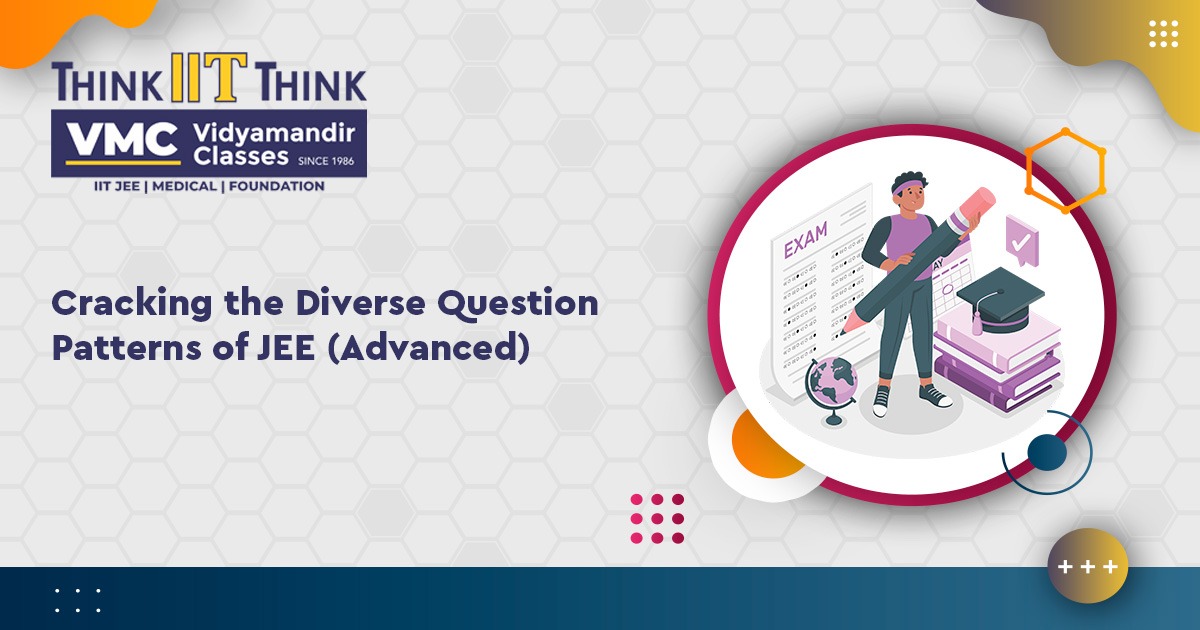Cracking the Diverse Question Patterns of JEE (Advanced)!
 Posted On
Posted On
396 total views, 2 views today
IIT Guwahati will administer the JEE (Advanced) 2023 on June 4. The candidates must check the different patterns of JEE (Advanced) questions with only one month until JEE (Advanced) 2023. The exam comprises two papers, each with a duration of three hours. Both papers contain multiple-choice questions, as well as numerical answer type questions. The JEE (Advanced) exam is known for its intricate and diverse question patterns. In this blog, we will discuss how to attempt various patterns of JEE (Advanced) questions.
Multiple-choice questions (MCQs)
MCQs are one of the most common question patterns in JEE (Advanced). In MCQs, there will be four options, and candidates need to select the correct answer. In some cases, there may be negative marking for incorrect answers. To attempt MCQs effectively, candidates should read the questions carefully and eliminate the options that are obviously incorrect. After narrowing down the options, it is essential to select the most appropriate answer.
Numerical answer type questions (NATs)
NATs are another type of question pattern in JEE (Advanced). In NATs, candidates are required to enter the answer as a numerical value. There is no negative marking for incorrect answers in NATs. To attempt NATs, candidates should pay close attention to the units and significant figures given in the question. They should also be careful with the calculation and round off the answer to the required significant figures.
Matrix match type questions
Matrix match type questions are a bit more complicated than MCQs and NATs. In matrix match type questions, there will be two sets of items. Candidates need to match the items in the first set with the items in the second set. The correct matching options need to be selected from the given choices. To attempt matrix match type questions, candidates should read all the options carefully and try to find the most appropriate matching options.
Comprehension type questions
Comprehension type questions are based on a given passage or a diagram. Candidates need to read the passage or study the diagram carefully and answer the questions accordingly. To attempt comprehension type questions, candidates should read the passage or study the diagram carefully. They should also underline or highlight the key points or important information in the passage or diagram.
Assertion and reason type questions
Assertion and reason type questions are a bit tricky as they require a logical approach. In these questions, candidates will be given an assertion and a reason, and they need to identify whether both are correct or not. To attempt assertion and reason type questions, candidates should read the assertion and reason carefully and analyze whether both are correct or not. If both are correct, then they need to check whether the reason is a correct explanation for the assertion or not.
Final Thoughts
In conclusion, JEE (Advanced) is a challenging exam, and candidates need to prepare themselves well to attempt the diverse paper pattern of JEE Advanced 2023. They should also practice previous year question papers and mock tests to enhance their speed and accuracy. With the right approach and preparation, candidates can crack JEE (Advanced) with flying colors.



